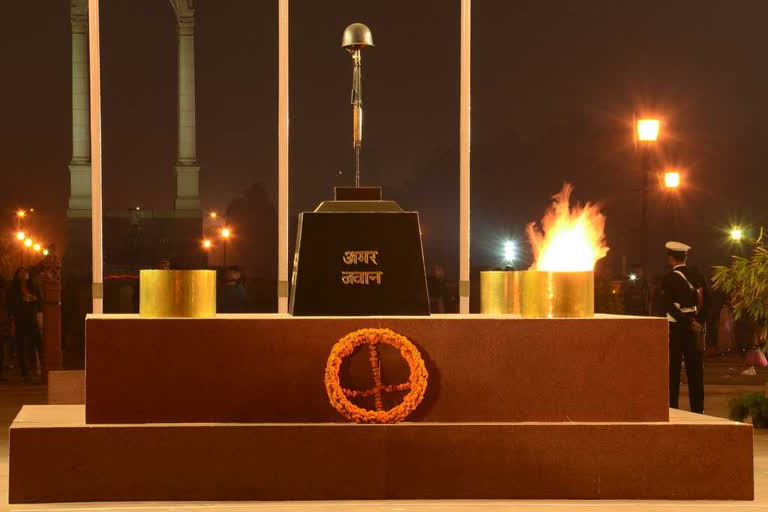New Delhi: The eternal flame at the India Gate will be extinguished after 50 years on Friday and will be merged with the flame at the adjoining National War Memorial in the run-up to the Republic Day.
The ceremony would be attended by the Integrated Defence Staff chief Air Marshal Balabadhra Radha Krishna who would merge the two flames, officials said. The India Gate memorial was built by the British government in memory of the British Indian Army soldiers who lost their lives between 1914-1921.
The eternal flame known as Amar Jawan Jyoti was built in 1972 underneath the India Gate arch to commemorate the soldiers martyred in the Indo-Pak War of 1971.
It is a memorial symbolised by an inverted bayonet and soldier's helmet over it with an eternal flame burning beside it. The existence of Amar Jawan Jyoti was questioned two years ago after the National War Memorial came into being and the nation got a new eternal flame there.
Previously, the Indian Army had stated that Amar Jawan Jyoti will continue as it is an "inseparable" part of the country's history, with the tri-services chiefs and visiting delegates paying their respect at the Amar Jawan Jyoti.
But with the new eternal flame at the National War Memorial and wreath-laying ceremony on all designated days being carried out at the memorial, the force will now merge the Amar Jawan Jyoti with the other. The memorial was built in memory of all soldiers and unsung heroes who laid down their lives defending the nation since Independence.
Spanning over 40 acres in the India Gate complex, the National War Memorial is dedicated to soldiers killed during the Indo-China War in 1962, Indo-Pak Wars in 1947, 1965 and 1971, Indian Peace Keeping Force Operations in Sri Lanka and in the Kargil Conflict of 1999, besides those killed in the UN peacekeeping missions.



